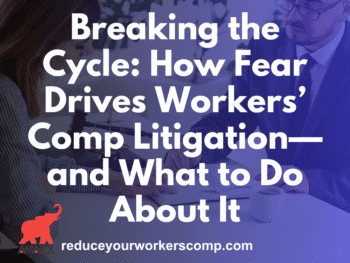Compensation claims of the widows of nine mineworkers killed by a mine explosion was rejected by the Supreme Court of Canada (SCC), after 15 years of litigation.
"This is the end of the line," said Jeffrey Champion, a lawyer with the Edmonton firm Bishop & McKenzie LLP, who represented the families in the SCC. "It's an understatement to say [the families] are just devastated by the whole decision."
The SCC unanimously agreed to dismiss the widows' claims for any liability in the deaths against Royal Oak Mines Inc, the miners' employer; Pinkerton's of Canada, the security firm hired to guard the site; the Government of the Northwest Territories; and, the Canadian Association of Smelter and Allied Workers (CASAW)(later amalgamated into Canadian Auto Workers (CAW)) – the union representing the workers according to Canadian OH&S News.
Initially, in 2004, a lower court judge awarded the widows $10.7 million. His ruling was overturned, leading to the latest Supreme Court decision.
Anne Clark, president and CEO of the Workers' Safety & Compensation Commission of the Northwest Territories and Nunavut (WSCC), the body that financed the widows' suit, wrote in a statement that the commission is "disappointed" with the outcome.
In September of 1992, four months into an acrimonious labor dispute at the Giant Mine near Yellowknife, Roger Warren, a striking miner, recently dismissed for rioting, surreptitiously entered the mine and planted an explosive device underground. The explosive, detonated by a trip wire, killed nine miners. Warren is currently serving a life sentence in prison.
Supported by the WSCC (then Workers' Compensation Board), the families of the deceased miners decided to file claims for damages against the parties listed above. They alleged the government and Pinkerton's breached a duty of care owed to the deceased. The government, they argued, was negligent in not shutting down the mine during a period of violent dispute, while they accused Pinkerton's of not taking reasonable steps to prevent Warren from entering the mine. Their suit also claimed the union both incited Warren's actions and failed to control them.
In 2004, the trial judge ruled in the widows' favor, awarding them $10.7 million in damages. His decision was overturned in the territorial appeal court three years later. The higher court ruled the appellants did not owe a duty of care to prevent Warren's actions.
Despite his clients' disappointment with the outcome of the SCC hearing, Champion noted the decision set an important precedent for future cases of a similar nature. "[The SCC] determined, in those situations, security providers and governments do owe a duty of care," he commented. (workersxzcompxzkit)
Champion was also comforted by the confirmation that worker safety and accountability are matters that merit the SCC's attention saying, "The fact that this lawsuit went all the way to the Supreme Court indicates that the issues that we raised do carry national importance."
Podcast/Webcast: Claim Handling Strategies
Click Here:
http://www.workerscompkit.com/gallagher/podcast/ Claim_Handling_Strategies/index.php
FREE WC IQ Test: http://www.workerscompkit.com/intro/
WC Calculator: http://www.reduceyourworkerscomp.com/calculator.php
Do not use this information without independent verification. All state laws vary. You should consult with your insurance broker or agent about workers' comp issues.
©2010 Amaxx Risk Solutions, Inc. All rights reserved under International Copyright Law. If you would like permission to reprint this material, contact Info@ ReduceYourWorkersComp.com.



























